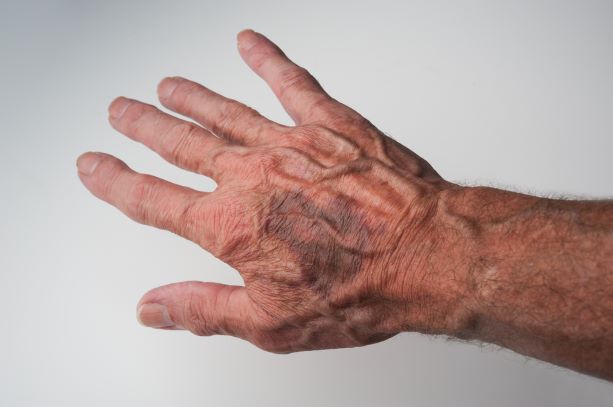
We all manage to bruise ourselves at some point in time. While the average bruise may be a little unsightly or painful to the touch, they tend to heal quickly and life carries on. When it comes to our elderly loved ones, we should pay special attention to any bruise.
Here’s everything you need to know about elderly bruising and what you can do to ensure that their life continues on a healthy path.
Why Bruises Within the Elderly Should Be Taken Seriously
Bruises among the elderly are actually quite common, however, it should only be a matter of concern if they don’t dissipate within a week or so. A bruise that doesn’t heal properly could be a sign of a hematoma that’s clotting up or a case of internal bleeding.
Also, if your loved one can’t remember how they got a bruise, this could be a sign of two underlying health issues:
- Memory loss
- Blood sugar problems that result in blackouts and falls
The key signs that something is wrong with your loved one’s bruising include:
- Warmth around the area
- Fever
- Increased pain
Why the Elderly Bruise
Although most bruises are caused by a bump or a fall, there are other underlying causes behind why your elderly loved ones may experience this issue more often than you’d like.
Medications
Several helpful medications the elderly take can be some of the most common causes of bruising. For example, anticoagulant medications that thin out the blood to prevent heart attacks and strokes can increase the possibility of bruising. Other medications that can be found over the counter are also culprits. These include:
- Cortisone medication
- Ibuprofen
- Aspirin
Thinner Skin
Not all bruises are the result of a fall. Sun exposure and age often result in thinner skin that bruises easier. Years of sun exposure can lead to the weakening of the walls of your blood vessels. This results in the bruises one may find on the back of their elderly loved one’s hands. Oftentimes, thinner skin bruising isn’t a huge red flag, but it never hurts to have consistent bruising checked by a physician.
Nutritional Deficiencies
Deficiencies of vitamin C and iron can also lead to weakened vessel walls. From reduced appetites to specialty diets, your loved one may have to shift their restrictions to ensure that they’re getting the nutrients they need for a healthy livelihood.
Bruising Prevention Tips
Unfortunately, brushing in the elderly can be common. However, there are some steps that family members can take to help mitigate the risks. Some things you and your family can do are:
- Assisting loved ones with getting up from a seat
- Clearing their apartment of any fall hazards
- Providing guided assistance like canes or walkers
Experience Comfortable, Clean Living With Cornerstone Senior Living
Regardless of how normal bruising may seem, if your loved one experiences consistent bruising, a trip to the doctors is highly recommended. While monitoring bruises away from your loved one can be difficult, the staff at Cornerstone Senior Living is always ready to help. With us, your family is ours, and we take extra care to ensure that each of our community members live their best and healthiest lives. If your loved one is ready to start living in comfort within one of our communities, we are ready to give you the full tour. Contact a Cornerstone community today to find out more about our specialty programs.



 Copyright © 2023 Cornerstone Senior Living - All Rights Reserved
Copyright © 2023 Cornerstone Senior Living - All Rights Reserved
Great post and information.
I agree with you.
Where can I find a pricing schedule.my wife is at village of valley ranch in west Little Rock. She is in Medicaid. I’m at an assisted living in Little Rock.. my wife has Alzheimer’s and is in memory care.